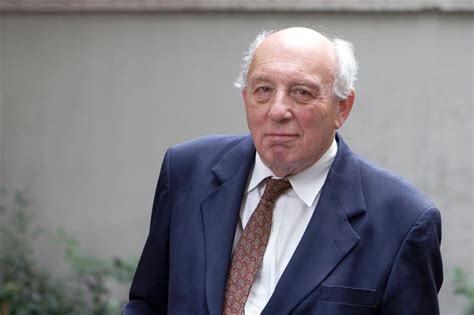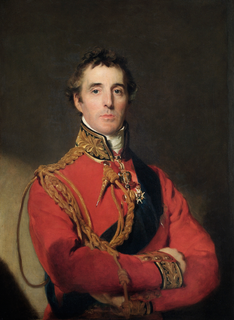A Quote by Frederick Douglass
No, I make no pretension to patriotism. So long as my voice can be heard on this or the other side of the Atlantic, I will hold up America to the lightning scorn of moral indignation. In doing this, I shall feel myself discharging the duty of a true patriot; for he is a lover of his country who rebukes and does not excuse its sins.
Related Quotes
Populism is folkish, patriotism is not. One can be a patriot and a cosmopolitan. But a populist is inevitably a nationalist of sorts. Patriotism, too, is less racist than is populism. A patriot will not exclude a person of another nationality from the community where they have lived side by side and whom he has known for many years, but a populist will always remain suspicious of someone who does not seem to belong to his tribe.
IF WE AND OUR POSTERITY SHALL BE TRUE TO THE CHRISTIAN RELIGION, IF WE AND THEY SHALL LIVE ALWAYS IN THE FEAR OF GOD AND SHALL RESPECT HIS COMMANDMENTS, IF WE AND THEY SHALL MAINTAIN JUST MORAL SENTIMENTS AND SUCH CONSCIENTIOUS CONVICTIONS OF DUTY AS SHALL CONTROL THE HEART AND LIFE, WE MAY HAVE THE HIGHEST HOPES OF THE FUTURE FORTUNES OF OUR COUNTRY. OUR COUNTRY WILL GO ON PROSPERING.
Patriotism, or the peculiar relation of an individual to his country, is like the family instinct. In the child it is a blind devotion; in the man in intelligent love. The patriot perceives the claim made upon his country by the circumstances and time of her growth and power, and how God is to be served by using those opportunities of helping mankind. Therefore his country's honor is dear to him as his own, and he would as soon lie and steal himself as assist or excuse his country in a crime.
Every patriot believes his country better than any other country . . . In its active manifestation-it is fond of killing-patriotism would be well enough if it were simply defensive, but it is also aggressive . . . Patriotism deliberately and with folly aforethought subordinates the interests of a whole to the interests of a part . . . Patriotism is fierce as a fever, pitiless as the grave and blind as a stone.
It is a long time,' repeated his wife; 'and when is it not a long time? Vengeance and retribution require a long time; it is the rule.' 'It does not take a long time to strike a man with Lightning,' said Defarge. 'How long,' demanded madame, composedly, 'does it take to make and store the lightning? Tell me?
It is the quality of patriotism to be jealous and watchful, to observe all secret machinations, and to see publick dangers at a distance. The true lover of his country is ready to communicate his fears, and to sound the alarm, whenever he perceives the approach of mischief. But he sounds no alarm, when there is no enemy; he never terrifies his countrymen till he is terrified himself. The patriotism, therefore, may be justly doubted of him, who professes to be disturbed by incredibilities.
When the doctrine of allegiance to party can utterly up-end a man's moral constitution and make a temporary fool of him besides, what excuse are you going to offer for preaching it, teaching it, extending it, perpetuating it? Shall you say, the best good of the country demands allegiance to party? Shall you also say it demands that a man kick his truth and his conscience into the gutter, and become a mouthing lunatic, besides?
A man's country is not a certain area of land, of mountains, rivers, and woods, but it is a principle: and patriotism is loyalty to that principle. In poetic minds and in popular enthusiasm this feeling becomes closely associated with the soil and the symbols of the country. But the secret sanctification of the soil and the symbol is the idea which they represent, and this idea the patriot worships through the name and the symbol, as a lover kisses with rapture the glove of his mistress and wears a lock of her hair upon his heart.
And if a minister shall usurp the supreme and absolute govern ment of America, and set up his instructions as laws in the colonies, and their Governors shall be so weak or so wicked, as for the sake of keeping their places, to be made the instruments in putting them in execu tion, who will presume to say that the people have not a right, or that it is not their indispensible duty to God and their Country, by all rational means in their power to RESIST THEM.
But a good patriot, and a true politician, always considers how he shall make the most of the existing materials of his country. A disposition, to preserve, and an ability to improve, taken together, would be my standard of a statesman. Everything else is vulgar in the conception, perilous in the execution.
He that plays the king shall be welcome- his Majesty shall
have tribute of me; the adventurous knight shall use his foil and
target; the lover shall not sigh gratis; the humorous man shall
end his part in peace; the clown shall make those laugh whose
lungs are tickle o' th' sere; and the lady shall say her mind
freely, or the blank verse shall halt fort.


































